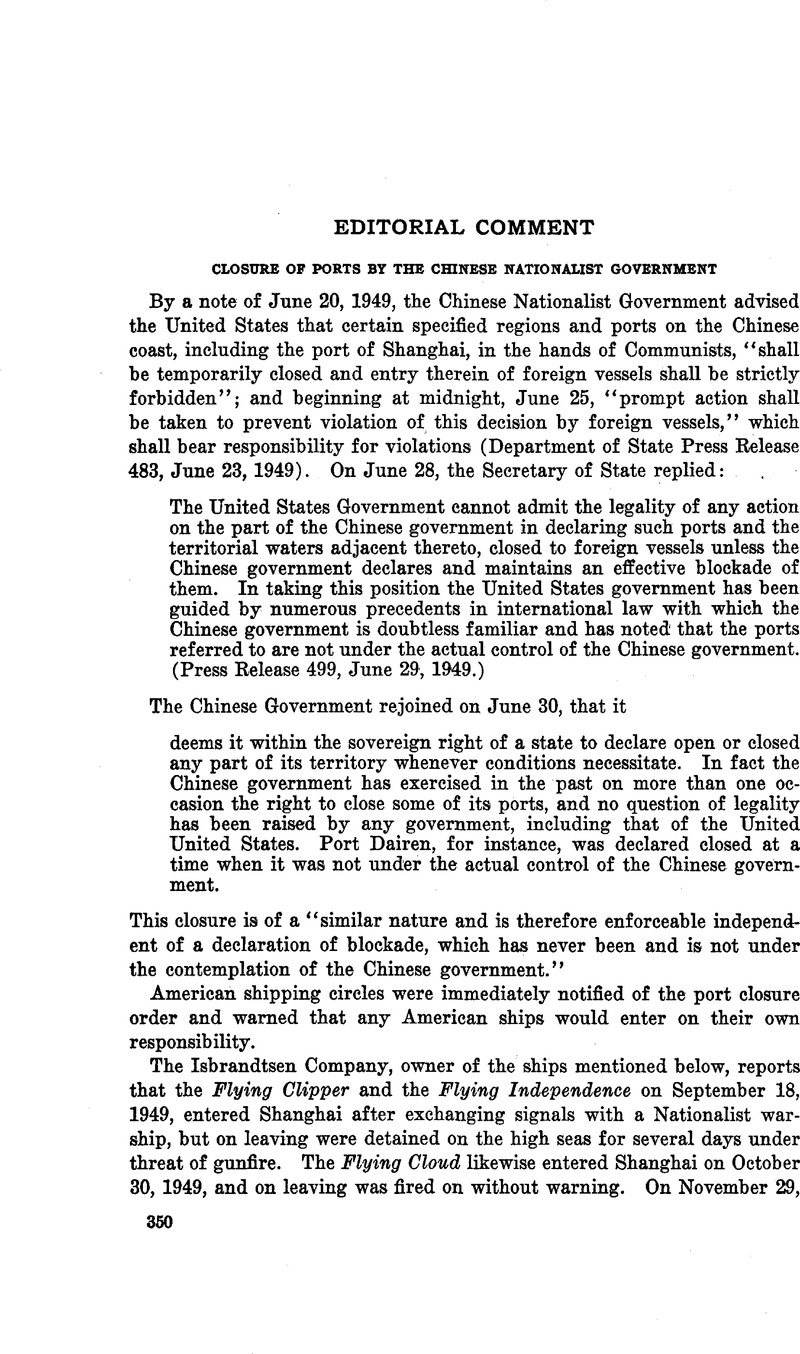Published online by Cambridge University Press: 20 April 2017

1 Reported by United States Consul as hit twelve times (New York Times, Nov. 28, 1949).
2 Moore, Digest of International Law, Vol. II, p. 1119.
3 Haekworth, Digest of International Law, Vol. II, p. 316; Vol. VII, J 629. See also the Three Friends, 166 U. S. 1; Briggs, Law of Nations, pp. 743-749; Dickinson, “The Closure of Ports in Control of Insurgents,” this JOURNAL, Vol. 24 (1930), p. 69; Wilson, “Insurgency and International Maritime Law,” ibid., Vol. 1 (1907), p. 46; Padelford, “International Law and the Spanish Civil War,” ibid., Vol. 31 (1937), p. 226; Moore, Digest, Vol. II, pp. 1076-1123.
By the recognition of belligerency the recognizing state must treat both belligerents alike. It can no longer render aid to the former insurgents or the parent state without violating the law of neutrality, nor, before recognition of belligerency, render aid to the insurgents without violating the law of non-intervention (Garner, “Questions of International Law in the Spanish Civil War,” this JOURNAL, Vol. 31 (1937), p. 66), though it could render aid to the parent state.
4 It may be noted that some writers believe that a right of quasi-blockade inheres in the parent state, which does not connote recognition of belligerency or necessarily have that effect.
5 Naval Regulation 0320 reads: “So far as lies within his power, acting in conformity with international law and treaty obligations, the senior officer present shall protect all commercial vessels and aircraft of the United States in their lawful occupation and shall advance the commercial interests of the United States.”
6 Moore, Digest, Vol. VI, p. 20.